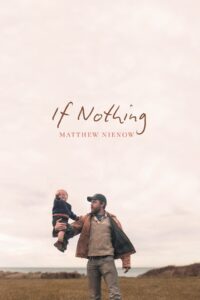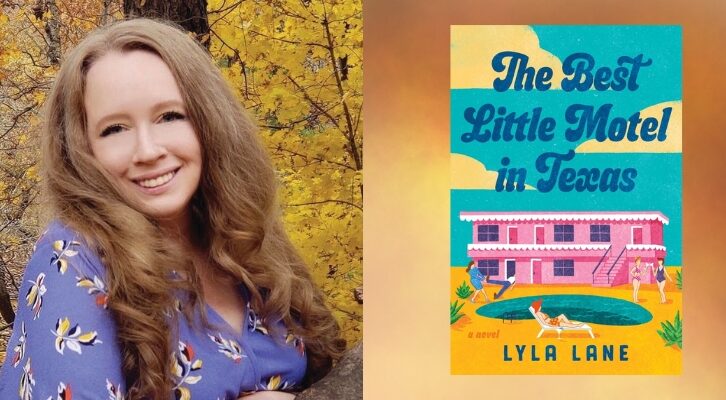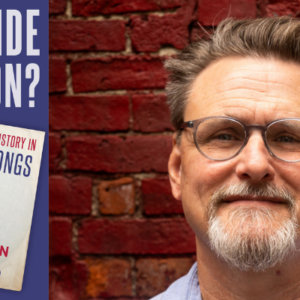
“When I Quit Drinking I Quit Writing.” Matthew Nienow on Stumbling Back Into Poetic Vulnerability
“I wrote into that darkness because that kind of honesty was the only thing that felt right.”
When I quit drinking almost eight years ago, I also quit writing. Though my daily practice had already been disrupted by life with young children, I always found time to work on poems. Poetry was a place for capital “T” truth, which could arrive in a sideways time warp or straight on with plainspoken verve. I felt known there.
In that work of making poems, I was somehow capable of showing up in full without the need to be numb. Getting sober meant getting honest about all the damage I had caused in my devotion to substances. It was too much at first. And so, even as I quit drinking, cold turkey and alone, I doubled down on my longtime cannabis habit and was stoned for an entire year, 24/7, without pause.
In poems, I felt pulled to return to that pain, as though to heal a burn by standing in the fire.
Too much damage had already been done in my home life, and though I was moving in the direction of health, my wife and I separated but continued to live in different buildings on the same property while trying to co-parent our young boys. Aside from the momentary bliss that came and went with each toke, I couldn’t stand being with myself. Our weekly marriage counseling sessions made things both better and worse. I was trying to change, but every honest encounter came at a great cost. I didn’t just feel like a failure; I was a failure. I was finally acknowledging what other people close to me had seen for some time.
A year went by, and I realized I needed to give up weed for good. For every bit of inebriated armor I removed, the more vulnerable I truly felt. Though I still marvel that it happened at all, my wife and I decided to try forming a new relationship, almost like a second marriage within the first. It was slow-going and full of missteps, but everything was different this time around. I was no longer paying lip service to my role as a father and a partner. I was poking my head above the ashes of a severely dysfunctional life, all while floundering in and ocean of shame.
It took me about two years before I began to return to the page, and I stumbled my way back into that space, confused and filled with doubt, a terrible beginner. In my life outside of writing, I wanted nothing more than to be seen for all the changes I was making, to be known for who I was becoming, rather than who I’d been at my worst. But in poems, I felt pulled to return to that pain, as though to heal a burn by standing in the fire.
And so, I wrote backward into that pain, into the moments I was ashamed to admit. I didn’t do it for show or attention. And I definitely didn’t do it for redemption. No part of me wanted to admit that I had been so selfish for so many years. I wrote into that darkness because that kind of honesty was the only thing that felt right.
I could create a catalog of my lines and titles that call up an old dread, or fuel an ache I’d rather not know. In my poem titled “Dusk Loop,” I recall a seemingly endless string of drunken evenings when my temper was short, and my hurts took center stage, all at the immediate detriment of my young sons. Looking back, these nights blur together in a Groundhog Day of pain:
Because the dusk keeps being that same dusk, I don’t have to change. I am
always performing some act of cruelty, always hearing your confused, sad cry
when I said your mother and I were splitting up…
Even now, so many years later, I remember the specific night mentioned here. I was drunk on whiskey by 4 PM after telling my wife I would be taking a break from drinking during the week. I was so upset that she was upset with me, and I was so emotionally immature at that moment that I told my six-year-old son we were getting a divorce. I was hurting so badly that I needed him to feel it.
If you can live with loss, if you can face the ugliness within yourself straight on and be honest about it, that may be worth something.
“I do not deserve this chance to be good” I write in another poem, and I believe that fully. I don’t deserve it. At least to my ear, it feels trite when a literary arc addresses some former wrongdoing with the goal of seeking redemption or atonement. If anything, I’m interested in transformation, even if such change does not come with forgiveness. Because, here’s the thing about forgiveness: one can say they are sorry and not need to change, at least not too much.
*
There is a field below our house where I run my dogs several times a day. Some former owner must have used it as a burn pit or a dump, though you would never know by looking at it now. Yet, nearly every day, I find shards of glass and rusted nails glinting at the surface of the worn path my dogs favor. I have spent hours raking the earth, trying to gather up every last piece. No matter what I try, the dangers continue to appear, and each time, all I can do is pick up what is visible and throw it away.
It has been like this, learning to write fully sober. The field is beautiful, ringed by cedars, firs, madrone, and wild roses. Ravens and eagles frequent the circle of sky above the grass. And though I love spending time there, remnants of a past life rise up and risk new injury. My new book, If Nothing cost an era of grief to make. It cost my whole life, and though I am proud of all the work I’ve done to make this book and become the man I am today, I would take it all back just to have been boring, and steadfast, and kind all the way along. But, of course, that’s not how this works.
In another poem of mine, written much further into these years of healing, I suggest that the soul is borrowed / & does not thrive / without a bit of pain / to work against… / It will find you, / cracking the glass, / sowing doubt / in every field. / It will find you, / & you may choose / to let it in. If you can / live with loss, the soul / grows bright.”
If you can live with loss, if you can face the ugliness within yourself straight on and be honest about it, that may be worth something. Though I still feel a deep longing to be known as a good man, I’m done hiding. I can hear these lines from two different pieces in the book talking to each other: “All the second chances, / what did they teach me, if not to dream / more wildly toward a kingdom in which the king / was not so cruel?” I’ve done my best to make use of all these unearned do-overs, and I know more clearly than ever that “love is showing up so fully it hurts.”
__________________________________

If Nothing by Matthew Nienow is available from Alice James Books.
Matthew Nienow
Matthew Nienow is the author of the recently released collection, If Nothing, as well as House of Water (2016), both from Alice James Books. His work has appeared in Gulf Coast, New England Review, Ploughshares, and Poetry, and has been recognized with fellowships from the Poetry Foundation and the National Endowment for the Arts. He lives in Port Townsend, Washington, with his wife and sons, where he works as a mental health counselor.



















